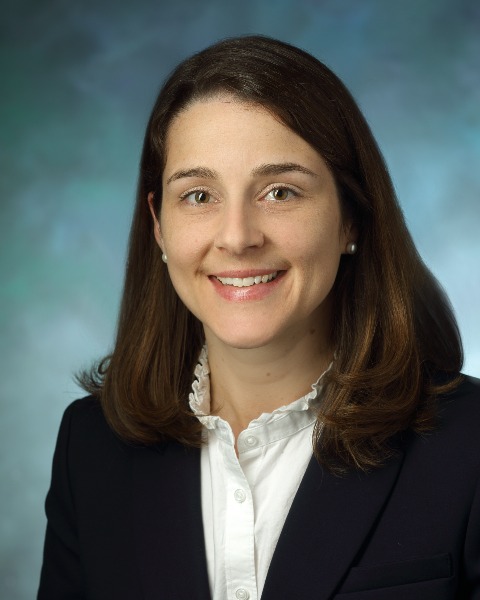Mental Health
Session: Mental Health 2
576 - Thinking Outside the [Training] Block: Longitudinal Experience More Effective Than Episodic Time with Mental Health Experts
Sunday, May 5, 2024
3:30 PM - 6:00 PM ET
Poster Number: 576
Publication Number: 576.2156
Publication Number: 576.2156

Elizabeth M. Chawla, MD (she/her/hers)
Associate Professor of Pediatrics
Georgetown University School of Medicine
Washington, District of Columbia, United States
Presenting Author(s)
Background: After three decades of efforts to improve Behavioral and Mental Health (BMH) training for pediatricians in the United States (US), little progress has been made. The COVID-19 pandemic has exponentially increased pediatric mental health needs, and yet studies continue to show graduates of US pediatric residency programs are inadequately prepared to manage these issues. Accreditation requirements for pediatric training programs have focused on exposing trainees to experts, including a required rotation in developmental and behavioral pediatrics since 2000 and likely a required pediatric mental health rotation in 2024.
Objective: Our pediatric residency program has tried these approaches as well as others over the past decade, including integrating BMH specialists in the residents’ pediatric clinics. We conducted a qualitative study of graduates from our program to explore the factors impacting trainee ability to learn and later apply BMH skills in practice.
Design/Methods: We performed semi-structured interviews with graduates, purposefully sampled from a 6-year period spanning the implementation of various BMH training approaches in our program. Participants were asked to reflect on their current practice and past training, and discuss experiences that impacted their learning and use of BMH skills. We iteratively analyzed and coded interview transcripts using the Consensual Qualitative Research method followed by abstraction and synthesis of themes.
Results: Eleven graduates were interviewed. Factors impacting the learning and application of BMH skills centered around experiences that either facilitated or inhibited self-efficacy. Experiences where training had been ‘outsourced’ to non-pediatrician experts, the lack of modeling by pediatric faculty, episodic education resulting in limited exposure, and observation only learning environments limited the usefulness of training. Valuable experiences were those that provided ‘access to the specialist’ while caring for their own patients, graduated autonomy with scaffolded support, and environments that provided longitudinal education.
Conclusion(s): Consistent with experiential learning theory, sending trainees to ‘learn from experts’ is not enough to achieve BMH competence. Residents who developed BMH self-efficacy did so over time while providing the care to their own patients with support from mental health specialists integrated into their clinical spaces. As pediatric training programs begin to plan how they will respond to new ACGME requirements for BMH training, these concepts will be integral to the success of new programming.
